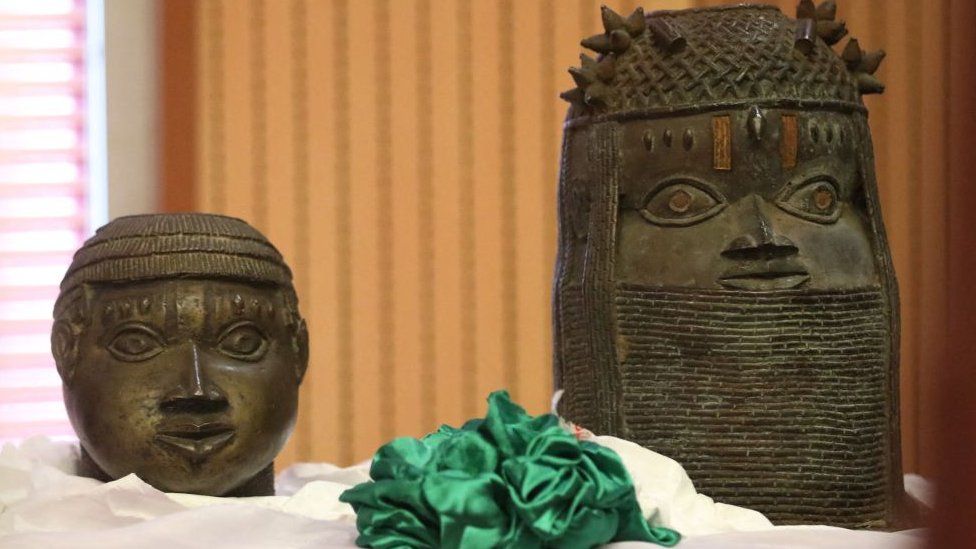This week more than 20 artefacts have been returned to Nigeria by Germany and more than 1000 will follow in the next years.
At the “historic” repatriation ceremony in the Nigerian capital, Abuja, Germany’s Foreign Minister Annalena Baerbock said: “Today, we are here to return the Benin Bronzes to where they belong, to the people of Nigeria. We are here to right a wrong.”
Benin bronzes are a group of brass and bronze sculptures made in the Kingdom of Benin in present-day Nigeria. The sculptures were created between the 13th and 17th centuries, many of them were looted by British soldiers during a military expedition in 1897, and today they can be found in museums and private collections around the world. Earlier this year, Germany and Nigeria have signed an accord for the return of more than 1000 looted artefacts. “It was wrong to take the bronzes; it was wrong to keep them for 120 years. The bronzes “are some of Africa’s greatest treasures, but they are also telling the story of colonial violence,” said Baerbock when signing the agreement.
Nigeria’s minister of information and culture thanked Germany and hopes other nations will take example. “Twenty years ago, even 10 years ago, nobody could have anticipated these bronzes returning to Nigeria, because the obstacles to achieving repatriation were seemingly insurmountable. But today, with the pioneering gesture of a friendly nation, Germany, the story has changed,” said Alhaji Lai Mohammed. Meanwhile, Nigeria’s National Commission for Museums and Monuments has issued formal repatriation requests to museums around the world.
The minister also called on the British Museum in London, which holds by far the biggest and most significant collection of Benin Bronzes, to release the almost 1000 artefacts it has. Godwin Obaseki, the governor of Edo state said:“Britain has most of the works, and we thought they would provide leadership. They were the ones who came here and destroyed the empire, they were the ones who looted pieces from here, and they should be leading in restitution.”
During her speech at the ceremony in Abuja, Baerbock emphasised the importance of the cultural heritage: “What would it mean for us to be deprived of our cultural heritage? To not be able to marvel at the Gutenberg Bible in Mainz? To be unable to admire Martin Luther’s writings? To stand in front of a sculpture by Käthe Kollwitz in Berlin or at Goethe’s desk in Weimar? It evokes a sense of loss I can hardly imagine. To you here in Nigeria, however, this loss has been your reality.”
Source: theguardian.com



